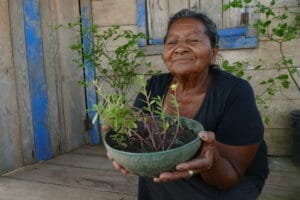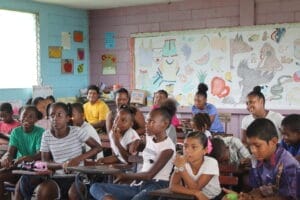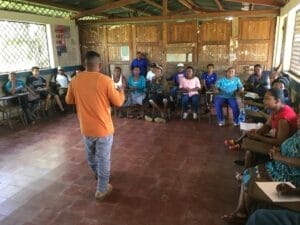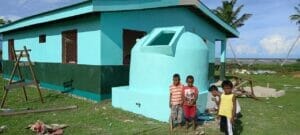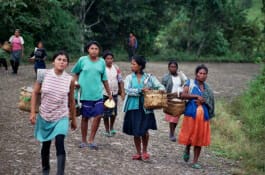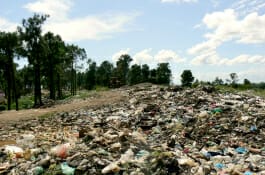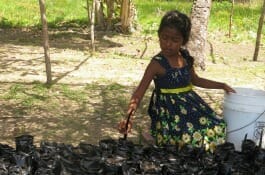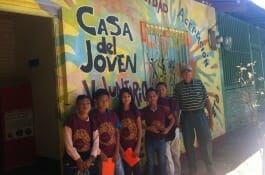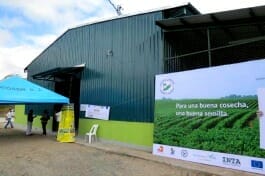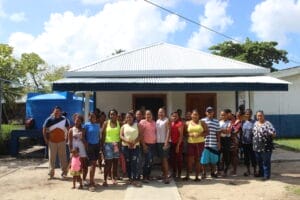
The objective of this project is to promote the resilience of the indigenous and Afro-descendant populations of the coast in…
Discover moreWe have been operating in Nicaragua since 1984, guaranteeing a constant presence in the most vulnerable areas of the country, such as the Autonomous Regions of the Caribbean Coast, an area of predominantly indigenous and Afro-descendant people; and also in the departments located in the Dry Corridor (in the central-northern area of the country), such as Matagalpa and Jinotega. Currently we work in the sectors of gender equality and the empowerment of women and girls, and in comprehensive disaster risk management. We have 2 offices in the country, the administrative headquarters in Managua and another in Bilwi, Puerto Cabezas.
According to data from the UNDP Human Development Index, Nicaragua is one of the four countries with the highest poverty rates in Central and South America. In 2020, the country experienced an increase in the number of people living below the poverty line, reaching 45.4% (almost 3 million people), of which 8.7% lived in extreme poverty (with less than a dollar a day). Although the incidence of poverty is high for the rural population in general, it is especially so for the population of the regions in the Caribbean Coast, where the poverty percentage reaches 63.2%.
In recent years there has been an increase in the rates of gender violence and feminicide in the country. Among Central American countries, Nicaragua registers the highest rate of early pregnancies due to sexual abuse. In addition, the country is situated in a region strongly hit by adverse natural phenomena, such as the hurricanes Eta and Iota of 2021.
In Nicaragua, we have experience on multiple themes. We guarantee the application of rights, gender and intercultural approaches, as well as prior coordination with authorities at different levels, including the governance structures of indigenous and afro-descendant populations, and local Non-Profit Organizations.
We guide our intervention working in two main programs:
We work, together with local organizations, with the intention of strengthening their organizational capacities and their action and intervention in the field of protection and primary care for women, adolescents, girls and boys who are survivors of or at risk of violence in all its manifestations. We contribute to preventing gender violence and promoting emancipation processes for young people and women (mostly rural, indigenous and afro-descendant), promoting a change in cultural models and social schemes that induce violent and discriminatory behavior.
Our action is structured into 3 components:
From an environmental point of view, we work around three main components:
The objective of this project is to promote the resilience of the indigenous and Afro-descendant populations of the coast in…
Discover moreUnder the principle of “leaving no one behind”, we apply the integrated system to respond to emergencies and promote the…
Discover moreThis project focuses on contributing to the emergency response caused by Hurricane Julia, mitigating at the same time the impact…
Discover moreThis project seeks to work against the effects of gender violence in Nicaragua in all its forms and manifestations, focusing…
Discover moreThis project works to support indigenous peoples in improving the management of their territories and good living, including the participation…
Discover moreThe context of intervention The Action seeks to reduce the effects and presence of sexual violence in Nicaragua against girls,…
Discover moreNicaragua belongs to the Central American subregion and it is exposed to recurring weather phenomena such as tropical cyclones, seasonal…
Discover moreIn Nicaragua, despite the presence of numerous applicable laws, combating violence against women and their lack of access to economic…
Discover moreAlthough Nicaragua has reached a good level of development, placing itself among the middle-income countries, the latest data compiled by…
Discover moreThe Mosquitia region has been countinuously hit by natural disasters caused by climate change. For this reason, the program aims…
Discover moreAlthough Nicaragua has approved most of the international conventions on children Gender, their security isn’t yet guaranteed. In Chinandenga Departement,…
Discover moreThe project aims to boost the production of seeds carried out by local specialised cooperatives, by supporting national policies concerning…
Discover more